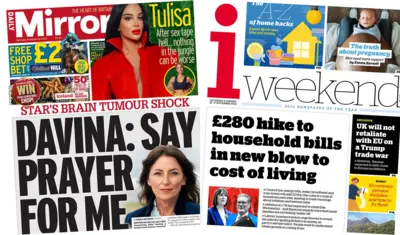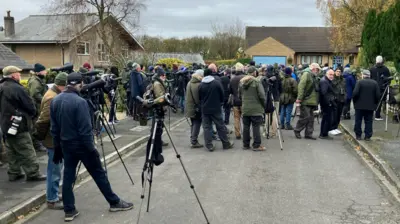We've updated our Privacy and Cookies Policy
We've made some important changes to our Privacy and Cookies Policy and we want you to know what this means for you and your data.
EU veto 'cleaner' than negotiations says minister
It was "cleaner" for the UK to reject an EU pact paving the way for closer fiscal co-operation than to take part in detailed negotiations on it, Europe Minister David Lidington has said.
He told a Lords committee that agreeing to talks but then blocking a subsequent treaty change would have led to "bad-tempered wrangling".
David Cameron said the UK did not get sufficient safeguards to sign up.
But Lib Dem peer Lord Maclennan said the UK had "intended to be wreckers".
Mr Cameron's decision not to sign an outline EU-wide agreement in December on potential future budgetary co-operation and oversight caused ructions in the coalition government, and led to criticism that the UK was isolated in Europe and had gained nothing in return for its opposition.
But questioned by the EU Lords Committee on the negotiating process, Mr Lidington said there had been "complete agreement" between senior Conservatives and Lib Dems about the UK's approach to the talks.
Pressed on why the UK had rejected the proposals when there was no "formal treaty text", he said the UK had been presented with a "political declaration" about the future shape of the eurozone and it was not in the UK's national interest to agree without certain safeguards on the single market and City regulation being met.
'Perfectly clear'
"I think the prime minister's decision was perfectly clear," he said. "That he decided at the start of the process it was going to be cleaner to say 'sorry, we can't go along with this in the absence of our safeguards' than to have these two or three months of bad-tempered wrangling which I thought would be the risk otherwise."
Crossbench peer and former diplomat Lord Hannay said the UK had departed from the "tried and tested" strategy adopted by Baroness Thatcher, arguing the former Conservative prime minister had always agreed to take part in EU negotiations to try and influence their outcome while reserving the right at the end to block them.
But Mr Lidington said the situation confronting Mr Cameron in December was different than in earlier negotiations on the EU single market and what became the Maastricht Treaty.
Mr Cameron, he argued, had been asked to sign a declaration which "would not just express a political commitment by all 27 member states to treaty change but define the scope of that treaty change for a subsequent formal procedure".
The time pressures - given the pressing economic crisis in the eurozone - were also "very different," he argued.
"What we had here was a determination from the very start that this was something that had to completed within roughly three months... and to get it done as early as possible within that time frame. If we had adopted the course Lord Hannay implies, we would have been throwing all sorts of uncertainties into that very constrained negotiation."
'Extraordinary'
But Lord Maclennan said the UK had been "starting at shadows", since it was not clear that it would have suffered any negative impact from agreeing to participate in talks.
"What you describe as safeguards are against proposals that have not even been tabled," he told the minister. "Were you just not intending to be wreckers?"
And Labour peer Lord Richard said the government's explanation of the negotiations and their outcome was "not credible".
"I ask the simple question: what on the earth was the point of this exercise?
"It seems to me we are now in a situation we have upset a lot of people in Europe needlessly, we are faced with a text which we don't particularly object to and we were totally isolated in the process leading up to it."
But Mr Lidington said he was confident the UK would continue to "play a positive and active role" within the EU.
Top Stories
More to explore
Most read
Content is not available








